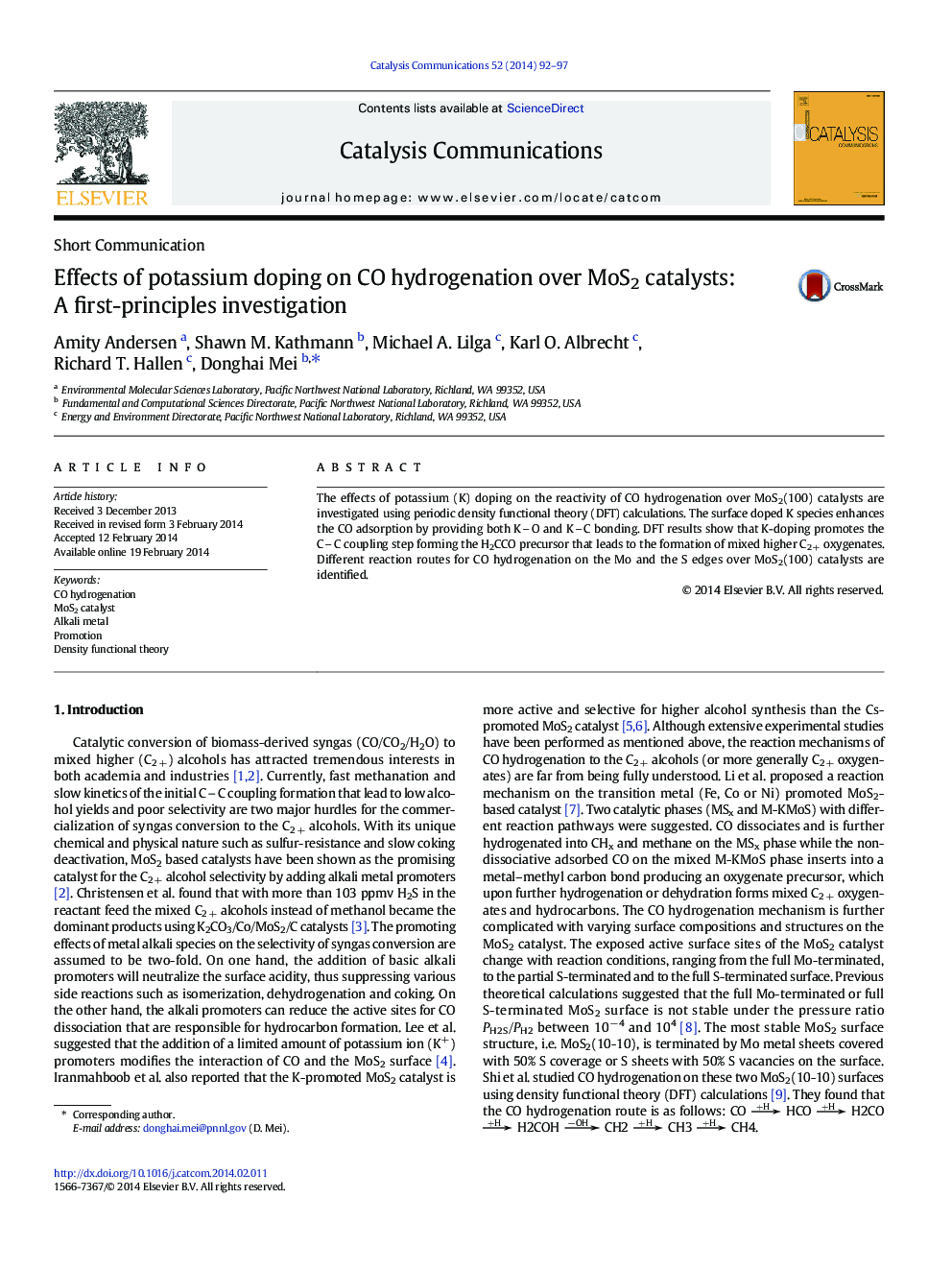| Article ID | Journal | Published Year | Pages | File Type |
|---|---|---|---|---|
| 49664 | Catalysis Communications | 2014 | 6 Pages |
Abstract
•K doping into the MoS2(100) catalyst enhances CO adsorption.•K doping promotes the CC coupling step (H2C + CO) forming H2CCO intermediate.•Different reaction routes toward H2CCO on Mo and S edges are identified.
The effects of potassium (K) doping on the reactivity of CO hydrogenation over MoS2(100) catalysts are investigated using periodic density functional theory (DFT) calculations. The surface doped K species enhances the CO adsorption by providing both KO and KC bonding. DFT results show that K-doping promotes the CC coupling step forming the H2CCO precursor that leads to the formation of mixed higher C2 + oxygenates. Different reaction routes for CO hydrogenation on the Mo and the S edges over MoS2(100) catalysts are identified.
Related Topics
Physical Sciences and Engineering
Chemical Engineering
Catalysis
Authors
Amity Andersen, Shawn M. Kathmann, Michael A. Lilga, Karl O. Albrecht, Richard T. Hallen, Donghai Mei,
